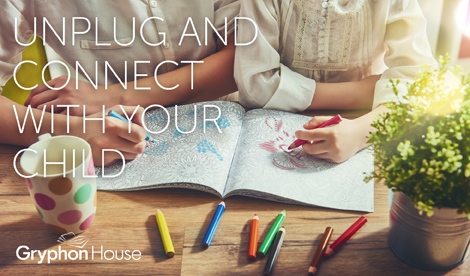

In this day and age, technology is always within reach. Smart phones and IPads are immediately at hand and present a multitude of distractions, from frivolous activities like social media to important matters like business emails. While there is much talk about the negative impact of technology on children, there is little discussion surrounding how it is affecting parenting. Young children, especially infants, require a great deal of attention to form a secure attachment with their caregiver, attention that should be almost exclusive. Technology that cuts into quality family time can impair infant cognitive development and put attachment at risk.
In Boosting Brain Power, Jill Stamm discusses the importance of attachment in young children’s lives, and explains how even little things like a parent checking their phone too much can impact a child’s security and self-esteem. But in order to understand the impact technology has on families.
Attachment
Attachment is a complex thing that scientists and developmental researchers have been studying extensively over the past several decades. How attachment forms is still being debated, but one thing that researchers agree on is that it is vital for the healthy growth of a child. Children need at least one caregiving figure that they trust, feel secure around, and feel they are loved by in order for them to make healthy connections with others as they age. Such a role is usually established in infancy when a child is at their most vulnerable.
While parents know how to satisfy their child’s physical needs, it is a bit harder to determine what an infant needs emotionally. Fortunately, the answer is as simple as touch and attention. As soon as babies are born, they begin to communicate their wants and needs with cries and fussing. When parents respond quickly to these cues, infants learn that they’re needs will be met and that they are cared for. This is important for emotional needs as well as physical ones; sometimes infants just need to know that their caregiver is there! By having their needs met quickly and efficiently, children develop a bond of trust that is the foundation for emotional development.
How Technology Cuts In
Attachment doesn’t stop at the meeting of needs, however. As they grow, infants and toddlers require attention that goes beyond being fed and changed. They want to play with their caregivers, talk to them, and be touched. By the time they are six months old, infants have learned to tell when they have their parents’ attention. They can recognize certain facial expressions and will smile to try and make their caregivers respond. Therefore, they recognize when parents stop paying attention as well.
When a parent is playing with their baby—emoting, talking, making faces—and they stop to look at their phones, infants notice. The sudden lack of emotion is concerning to them, and they will try to regain their parent’s attention by wiggling or smiling. However, if they are still ignored, the infant will withdraw. The problem is, even when parents intend to check just one thing, the vortex of a smart phone can take up more time than they intended. Checking a Facebook update can lead to scrolling through pages, and reading an email may require a response that takes a while to type. When parents reject their child’s attention in these moments—intentionally or unintentionally—they send a very powerful message to the infant: that their phone takes top priority and that their attention is only temporary. This severely undermines the feeling of trust and support needed for attachment!
How to Cut Down on Technology Interference
Obviously we can’t cut out technology altogether; it is a necessary part of our lives. However, there are some ways to make sure it doesn’t interfere with time spent with a child:
- When playing with a child, turn the phone off. Phones and the internet are powerful temptations, and many people have habits surrounding them. Even if you intend to ignore it, the sudden ping of an email can trigger a habitual response to look at the phone. That’s why, if you’re spending time with your child, it’s better just to turn everything off. Any information will still be there later, but these moments with your child are irreplaceable!
- Have set times to check emails or text messages. Many jobs revolve around electronic communication that intrudes even on off hours. If you’re concerned about missing something important by having the phone off, set up specific times to check it that are separate from playtime. That way everything gets done without any interference.
- Don’t bring electronic games to playtime. There may be many educational games and apps on smart phones, but this time is for you and your child. If given the choice, most infants would rather interact face to face with their caregiver instead of an IPad. Also, dealing with technology tends to remove the more verbal and emotional parts of play. Young children need those elements not only for attachment, but for important cognitive development as well.
Technology is an unavoidable part of life, but it should never come at the expense of a child. By being aware of their own responses to technology, parents can make sure the messages they send to their children are positive, and that they meet their child’s needs—emotional and physical.
Author(s)Jill Stamm
Marketer. Publisher. Reporter. Educator. Mother. Runner. Explorer. Anna served as director of marketing for Gryphon House from Oct 2014 - May 2017.
Topics: